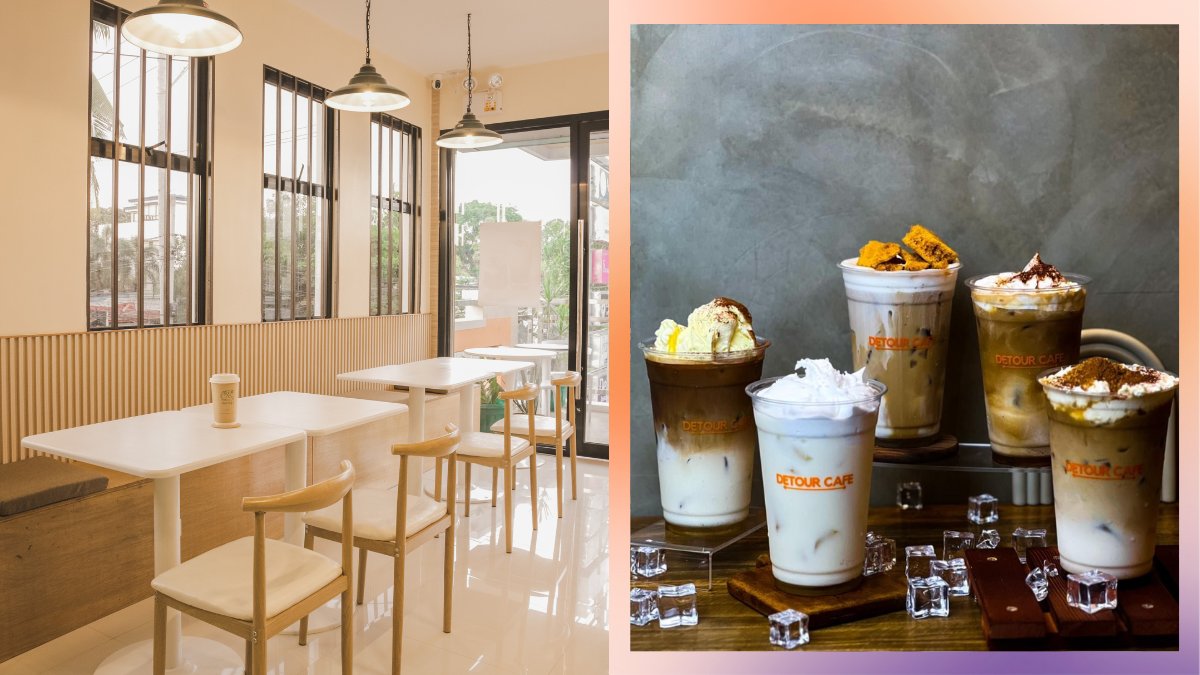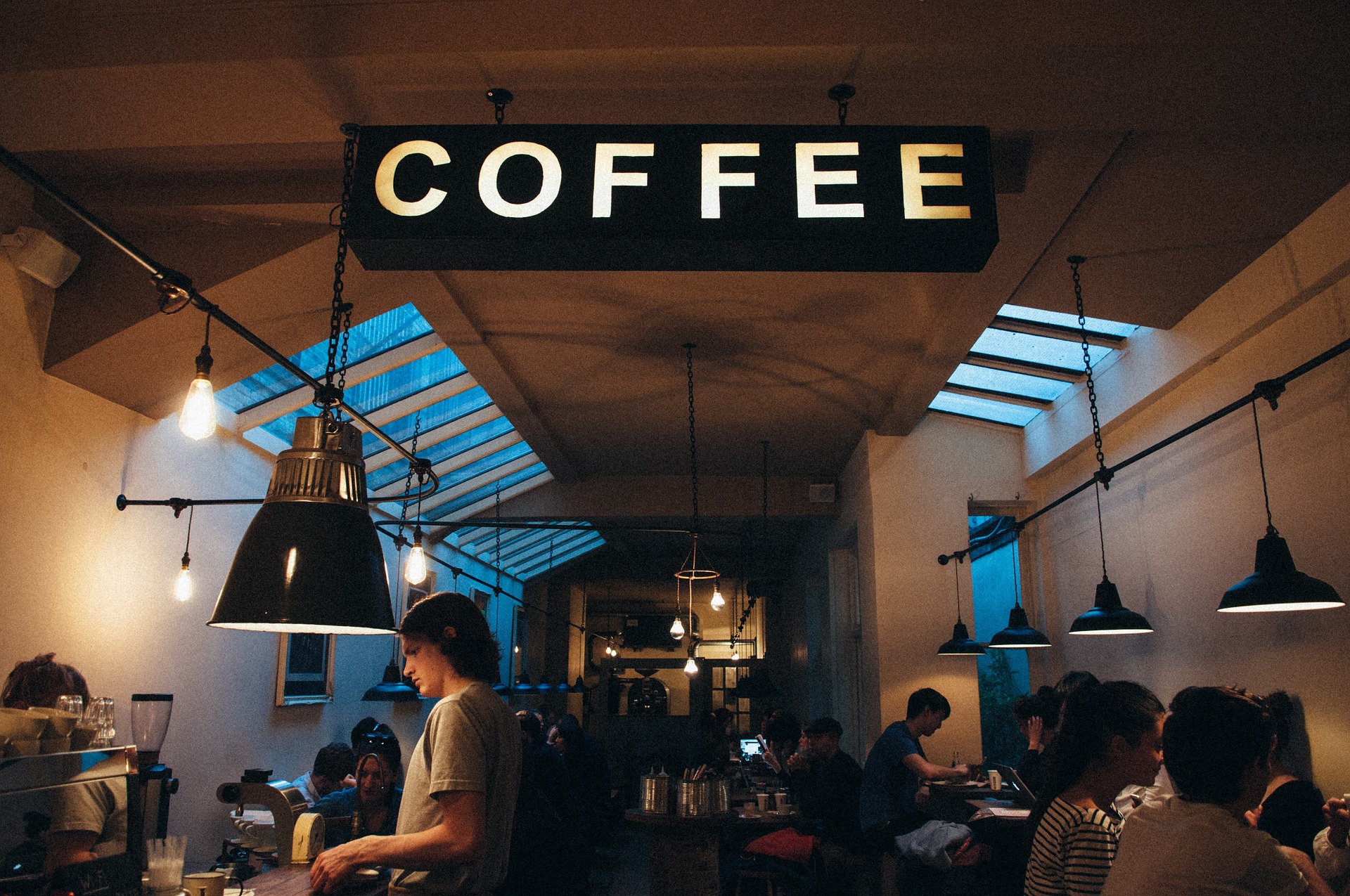Why Coffee Cafe Shops Are The Hubs Of Modern Social Life
Step into any coffee cafe shop today, and you’ll notice something magical happening. It’s not just about the coffee—it’s about the vibe, the community, and the experiences that unfold within those cozy walls. Coffee cafe shops have become more than just places to grab a latte; they’re modern-day social hubs where people connect, create, and thrive. If you’re looking for a spot to recharge your soul while sipping on your favorite brew, you’re in the right place. Let’s dive deep into why coffee cafe shops are taking the world by storm.
Imagine walking into a space where the aroma of freshly ground beans fills the air, and the hum of conversation mingles with the sound of milk frothing. Coffee cafe shops aren’t just about caffeine; they’re about creating an atmosphere that invites you to linger. Whether you’re a student cramming for exams, a freelancer working remotely, or simply someone who wants to escape the chaos of everyday life, these places offer something for everyone.
But here’s the kicker: coffee cafe shops are more than just trendy spots. They’re engines of community building, creativity, and innovation. In this article, we’ll explore everything you need to know about these beloved establishments, from their history to their impact on modern culture. So grab your cup of joe, sit back, and let’s get started.
Read also:Boost Your Future With Bkv Energy Revolutionizing Clean Power
What Makes Coffee Cafe Shops Stand Out?
The Unique Atmosphere of Coffee Cafes
Walking into a coffee cafe shop feels like stepping into a warm embrace. The lighting is just right, the music is chill, and the baristas greet you with a smile. But what exactly makes these places so special? It’s not just the coffee—it’s the entire experience. From the decor to the friendly staff, every detail is carefully curated to make you feel at home.
Research shows that people spend an average of 45 minutes in coffee shops, and it’s no wonder why. The ambiance encourages relaxation, creativity, and social interaction. Whether you’re meeting friends, brainstorming ideas, or simply enjoying a quiet moment, the atmosphere of a coffee cafe shop caters to it all.
Why Coffee Lovers Flock to These Cafes
Coffee lovers know that not all coffee is created equal. Coffee cafe shops offer a wide range of options, from classic espressos to experimental cold brews. But it’s not just the variety that draws people in—it’s the quality. Specialty coffee shops often source their beans directly from farmers, ensuring freshness and sustainability.
Did you know that 75% of coffee drinkers prefer their coffee in a café setting rather than at home? This statistic highlights the importance of the coffee shop experience. It’s not just about the drink—it’s about the ritual, the ambiance, and the sense of community that comes with it.
The History of Coffee Cafe Shops
From Ottoman Coffee Houses to Modern Cafes
The history of coffee cafe shops dates back centuries. In the 15th century, coffee houses in the Ottoman Empire were bustling centers of social and intellectual activity. People gathered to drink coffee, discuss politics, and exchange ideas. Fast forward to today, and the spirit of these early coffee houses lives on in modern cafes.
By the 17th century, coffee houses had spread across Europe, becoming popular in cities like London and Paris. These establishments were known as "penny universities" because for the price of a cup of coffee, patrons could engage in stimulating conversations with intellectuals and thinkers of the time.
Read also:Avery Leigh Nude Unveiling Facts Myths And The Bigger Picture
How Coffee Cafes Evolved Over Time
Over the years, coffee cafes have evolved to meet the changing needs of society. In the 20th century, coffee shops became associated with the Beat Generation, attracting writers, artists, and musicians. Today, they cater to a diverse range of customers, from tech entrepreneurs to families with young children.
The rise of third-wave coffee in the 21st century has further elevated the coffee shop experience. Third-wave coffee emphasizes quality, sustainability, and transparency, transforming coffee cafes into places where customers can learn about the origins of their coffee and the stories behind it.
The Role of Coffee Cafe Shops in Modern Culture
Coffee Cafes as Creative Spaces
In today’s fast-paced world, coffee cafe shops serve as creative sanctuaries. Many freelancers and remote workers choose to work from cafes because they provide a change of scenery and a sense of community. The informal setting encourages collaboration and innovation, making it the perfect place to brainstorm ideas or tackle creative projects.
According to a study by Forbes, working in a coffee shop can boost productivity by up to 20%. The background noise, often referred to as "white noise," helps people focus and stay productive. So the next time you’re stuck on a project, consider heading to your local coffee shop for a change of pace.
Social Connection in the Digital Age
While technology has made it easier to connect with people online, coffee cafe shops provide a space for real-world interactions. They’re places where people can meet friends, network with colleagues, or even strike up conversations with strangers. In an increasingly digital world, these face-to-face interactions are more important than ever.
Many coffee shops host events like poetry readings, live music nights, and art exhibitions, further fostering a sense of community. These events bring people together and create opportunities for meaningful connections.
Health Benefits of Coffee and Cafe Culture
Why Coffee is Good for You
Let’s talk about the elephant in the room: coffee’s health benefits. Contrary to popular belief, coffee isn’t just a guilty pleasure—it’s packed with antioxidants and can even reduce the risk of certain diseases. Studies have shown that moderate coffee consumption may lower the risk of conditions like Parkinson’s disease, Alzheimer’s, and type 2 diabetes.
But here’s the catch: not all coffee is created equal. To reap the health benefits, it’s important to choose high-quality, freshly brewed coffee. This is where coffee cafe shops come in. By sourcing premium beans and using expert brewing techniques, they ensure that every cup is as healthy as it is delicious.
The Mental Health Impact of Coffee Shops
Spending time in coffee cafe shops can also have a positive impact on mental health. The relaxed atmosphere and social interactions can help reduce stress and improve mood. In fact, a study published in the Journal of Psychiatric Research found that people who drank coffee regularly were less likely to experience depression.
So the next time you’re feeling down, consider treating yourself to a coffee shop visit. It might just be the mood boost you need.
How Coffee Cafe Shops Support Local Economies
Community-Focused Business Models
Coffee cafe shops play a vital role in supporting local economies. Many cafes source their beans from local farmers, purchase supplies from nearby businesses, and hire staff from the community. This commitment to local sourcing and employment helps stimulate economic growth and fosters a sense of pride and ownership among residents.
Additionally, coffee shops often partner with local artists, musicians, and entrepreneurs to host events and exhibitions. These collaborations not only benefit the artists but also attract more customers to the shop, creating a win-win situation for everyone involved.
Sustainability in Coffee Cafes
In recent years, sustainability has become a key focus for many coffee cafe shops. From using eco-friendly packaging to reducing water waste, cafes are taking steps to minimize their environmental impact. Some even go the extra mile by implementing zero-waste policies and composting programs.
For example, a study by the National Coffee Association found that 60% of coffee shops now offer reusable cups and discounts for customers who bring their own mugs. This small change can make a big difference in reducing plastic waste and promoting sustainability.
Challenges Faced by Coffee Cafe Shops
The Impact of Rising Costs
Despite their popularity, coffee cafe shops face numerous challenges. Rising costs of rent, labor, and raw materials have made it difficult for many cafes to stay profitable. In major cities, rent alone can account for up to 40% of a cafe’s expenses, leaving little room for error.
To combat these challenges, many cafes have turned to creative solutions like offering subscription services, hosting events, and expanding their product offerings. By diversifying their revenue streams, they can better weather economic fluctuations and continue providing value to their customers.
Competition from Big Chains
Another challenge faced by independent coffee cafe shops is competition from big chains like Starbucks and Dunkin’. These corporations have the resources to offer lower prices, expand rapidly, and invest heavily in marketing. However, independent cafes have a secret weapon: their unique charm and personalized service.
Many customers prefer the intimate, community-focused atmosphere of independent cafes over the standardized experience offered by chains. By focusing on quality, sustainability, and customer relationships, independent cafes can thrive even in the face of stiff competition.
Tips for Choosing the Right Coffee Cafe Shop
What to Look for in a Great Cafe
With so many coffee cafe shops to choose from, how do you find the right one? Here are a few things to consider:
- Quality of Coffee: Look for cafes that source their beans from reputable suppliers and roast them in-house.
- Atmosphere: Choose a cafe with an ambiance that matches your mood, whether you’re looking for a quiet spot to work or a lively place to socialize.
- Customer Service: A great cafe should have friendly, knowledgeable staff who are happy to answer your questions and make recommendations.
- Sustainability: Support cafes that prioritize eco-friendly practices and give back to the community.
How to Make the Most of Your Cafe Experience
Once you’ve found your favorite coffee cafe shop, here are a few tips to enhance your experience:
- Try Something New: Don’t be afraid to experiment with different drinks or pastries. You might discover a new favorite!
- Engage with the Community: Strike up conversations with other patrons or attend events hosted by the cafe.
- Leave Feedback: If you have a great experience, let the staff know. Positive feedback can go a long way in supporting small businesses.
Conclusion: Why Coffee Cafe Shops Matter
Coffee cafe shops are more than just places to grab a cup of coffee—they’re hubs of creativity, community, and connection. From their rich history to their modern-day impact, these establishments play a vital role in shaping our social and cultural landscapes. Whether you’re a coffee aficionado or just someone looking for a cozy spot to relax, coffee cafe shops offer something for everyone.
So the next time you’re in the mood for a coffee, consider visiting a local cafe. Not only will you enjoy a delicious drink, but you’ll also be supporting a business that contributes to your community. And who knows? You might just make a new friend or discover your next big idea while you’re there.
Don’t forget to share this article with your friends and leave a comment below. Let’s keep the conversation going and celebrate the magic of coffee cafe shops together!
Table of Contents
- Why Coffee Cafe Shops Are the Hubs of Modern Social Life
- What Makes Coffee Cafe Shops Stand Out?
- The Unique Atmosphere of Coffee Cafes
- Why Coffee Lovers Flock to These Cafes
- The History of Coffee Cafe Shops
- From Ottoman Coffee Houses to Modern Cafes
- How Coffee Cafes Evolved Over Time
- The Role of Coffee Cafe Shops in Modern Culture
- Coffee Cafes as Creative Spaces
- Social Connection in the Digital Age
- Health Benefits of Coffee and Cafe Culture
- Why Coffee is Good for You
- The Mental Health Impact of Coffee Shops
- How Coffee Cafe Shops Support Local Economies
- Community-Focused Business Models
- Sustainability in Coffee Cafes


